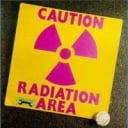Good!
Anti-nuclear is like anti-GMO and anti-vax: pure ignorance, and fear of that which they don’t understand.
Nuclear power is the ONLY form of clean energy that can be scaled up in time to save us from the worst of climate change.
We’ve had the cure for climate change all along, but fear that we’d do another Chernobyl has scared us away from it.
That is factually false information. There are solid arguments to be made against nuclear energy.
https://isreview.org/issue/77/case-against-nuclear-power/index.html
Even if you discard everything else, this section seems particularly relevant:
The long lead times for construction that invalidate nuclear power as a way of mitigating climate change was a point recognized in 2009 by the body whose mission is to promote the use of nuclear power, the International Atomic Energy Agency (IAEA). “Nuclear power is not a near-term solution to the challenge of climate change,” writes Sharon Squassoni in the IAEA bulletin. “The need to immediately and dramatically reduce carbon emissions calls for approaches that can be implemented more quickly than building nuclear reactors.”
https://www.dw.com/en/fact-check-is-nuclear-energy-good-for-the-climate/a-59853315
Wealer from Berlin’s Technical University, along with numerous other energy experts, sees takes a different view.
“The contribution of nuclear energy is viewed too optimistically,” he said. “In reality, [power plant] construction times are too long and the costs too high to have a noticeable effect on climate change. It takes too long for nuclear energy to become available.”
Mycle Schneider, author of the World Nuclear Industry Status Report, agrees.
“Nuclear power plants are about four times as expensive as wind or solar, and take five times as long to build,” he said. “When you factor it all in, you’re looking at 15-to-20 years of lead time for a new nuclear plant.”
He pointed out that the world needed to get greenhouse gases under control within a decade. “And in the next 10 years, nuclear power won’t be able to make a significant contribution,” added Schneider.
Long lead times against nuclear have bee raised for the last 25 years, if we had just got on with it we would have the capacity by now. Just cause the lead time is in years doesn’t mean it isn’t worth doing.
when is the best time to plant a tree? 30 years ago. When is the second best time? now.
“But I won’t see the benefit in MY lifetime!”
Now, where have we heard that kind of reasoning and logic before? What current crisis has been caused by that way of thinking?
Long lead times, cost overruns, producing power at a higher price point than renewables, long run time needed to break even, even longer dismantling times and a still unsolved waste problem. Compared to renewables that we can build right now.
deleted by creator
We can safely store waste for centuries.
Nice, we can defer the problem to the next generation.
And unlike nuclear reactors, solar panels can be recycled completely
Did you even read my comment? What’s your solution for the waste from solar power and the batteries needed to store it? That is a far more immediate and even longer-term problem.
Radioactive waste can be stored completely safely underground. The only reason we aren’t is because of “bleeding heart” morons who demand 100% safety, but only when it comes to nuclear. If we’re going to apply your concerns fairly, then solar power and anything involving battery farms is completely off the table. It’s far more damaging and more immediate than properly stored nuclear waste.
I would know this because part of my career has involved the manufacture and R&D for various types of solar panels. You have no idea what goes into making them and the challenges involving their safe disposal.
There’s a reason why I hate conservatives and don’t care about the wellbeing of liberals. Conservatives actively fuck shit up and you morons enable them.
EDIT: To respond to your edit, no they can’t be.
https://www.epa.gov/hw/solar-panel-recycling
Other materials located within the solar cells may be more difficult to recycle. Silver and internal copper are valuable components, but panels typically contain very small amounts of these materials. Toxic metals like lead and cadmium may also be present in solar panels.
How about you do some research instead of using a link from an organization that has a financial interest in getting you to buy solar panels and use them for recycling? Of course we can recycle the frames and glass in solar panels, that’s fucking easy. But nobody is worried about poisoning the environment from fucking glass. What’s your plan for the actual toxic metals and other chemicals in them?
The plan is the same as for all other parts, recycling. The US gas no provisions about recycling currently, which is the reason people choose the cheapest disposal method currently, just dumping it.
https://en.m.wikipedia.org/wiki/Kashiwazaki-Kariwa_Nuclear_Power_Plant
the largest fission plant was literally working 5 years after construction started
fission plants are just more expensive now because we don’t make enough of them.
I guess safety standards changed but even wind power kills more people per watt than fission so ¯\_(ツ)_/¯
Nuclear could’ve easily worked if people didn’t go full nimby in the past few decades
And there are solid counter-arguments to those. Would we have long lead times if nuclear power had been developed to the point where it was easier to build and we had more workers already trained in building them?
The more experienced construction workers you have, the more experienced scientists and engineers making necessary components, the cheaper it gets. Look at how expensive computers used to be compared to today. If we hadn’t of had Luddites getting in the way of nuclear power for half a century then we wouldn’t have this issue.
All the more reason to move forward with nuclear power and continue improving it before it really is too late.
“Long lead times” is utter, fucking bullshit. I’m sick and tired of “pro-environment” useful idiots shilling against nuclear power. What’s your alternative? Renewables that can’t scale to meet demand due to the laws of physics, geography, and engineering limitations? More coal and oil plants? Huge battery farms for storing electricity from renewables; the kind of batteries that devastate the environment with mining and destroy third world communities? Fusion power plants in two centuries? Get real and stop being a moron.
If we hadn’t of had Luddites getting in the way of nuclear power for half a century then we wouldn’t have this issue.
I think this insults Luddites. Luddites are not stupid to get in a way of nuclear power.
That is true, building a nuclear power plant doesn’t help. The problem is how many we closed down in a panic, in particular after Fukushima. We could make great strides towards cleaner energy and cutting the actually problematic power plants (coal, gas) out of the picture as we slowly transition to renewables-only if we had more nuclear power available.
Of course, in hindsight it’s difficult to say how one could have predicted this. There’s good reasons against nuclear energy, it just so happens that in the big picture it’s just about the second-best options. And we cut that out first, instead of the worse ones.
Those aren’t arguments against nuclear power; those are arguments against the incompetence of entities like Southern Company and Westinghouse, as well as the Public Service Commission that fails to impose the burden of cost overruns on the shareholders where they belong.
I should know; I’m a Georgia Power ratepayer who’s on the hook paying for the fuck-ups and cost overruns of Plant Vogtle 3 and 4.
It would’ve been way better if they’d been built back in the '70s, since all indications are that the folks who built units 1 and 2 actually had a fucking clue what they were doing!
“2009” hahahaha and here we are. More coal more gas plants than ever.
deleted by creator
Sadly it looks like the astroturfing has spilled over from reddit to here
I totally agree that current nuclear power generation should be left running until we have enough green energy to pick up the slack, because it does provide clean and safe energy. However, I totally disagree on the scalability, for two main reasons:
-
Current nuclear power generation is non-renewable. It is somewhat unclear how much Uranium is available worldwide (for strategic reasons), but even at current production, supply issues have been known to happen. And it goes without saying that waiting to scale up some novel unproven or inexistent sustainable way of nuclear power production is out of the question, for time and safety reasons. Which brings me to point 2.
-
We need clean, sustainable energy right now if we want to have any chance of fighting climate change. From start of planning of a new nuclear power plant to first power generation can take 15 or 20 years easily. Currently, about 10% of all electricity worldwide is produced by about 400 nuclear reactors, while around 15 new ones are under construction. So, to make any sort of reasonable impact, we would have to build to the tune of 2000 new reactors, pronto. To do that within 30 years, we’d have to increase our construction capacity 5 to 10 fold. Even if that were possible, which I strongly doubt, I would wager the safety and cost impacts would be totally unjustifiable. And we don’t even have 30 years anymore. That is to say nothing of regulatory checks and maintenance that would also have to be increased 5 fold.
So imho nuclear power as a solution to climate change is a non-starter, simply due to logistical and scaling reasons. And that is before we even talk about the very real dangers of nuclear power generation, which are of course not operational, but due to things like proliferation, terrorist attacks, war, and other unforseen disruptions through e.g. climate change, societal or governmental shifts, etc.
It is somewhat unclear how much Uranium is available worldwide (for strategic reasons), but even at current production, supply issues have been known to happen.
Nuclear fission using Uranium is not sustainable. If we expand current nuclear technologies to tackle climate change then we’d likely run out of Uranium by 2100. Nuclear fusion using Thorium might be sustainable, but it’s not yet a proven, scalable technology. And all of this is ignoring the long lead times, high costs, regulatory hurdles and nuclear weapon proliferation concerns that nuclear typically presents. It’d be great if nuclear was the magic bullet for climate change, but it just ain’t.
Well, there is Plutonium option, but superpowers want to be superpowers. Probably only USA, Russia, France and Britan can do it.
I thought thorium was way less problematic from a nuclear proliferation perspective, that the risk was largely constrained to dirty bombs?
Everything can be turned to dirty bomb
Nothing is truly renewable, we still don’t know how to cheat thermodynamics. Sun itself is not renewable.
Though sun will be problem million years later.
-
Nuclear power is the ONLY form of clean energy that can be scaled up in time to save us from the worst of climate change.
Long term nuclear is great…
But building new plants uses a shit ton of concrete. So we’re paying the carbon cost up front, and it can take years or even decades to break even.
So we can’t just spam build nuke plants right now to fix everything.
30 years ago that would have worked.
Building any sort of new power plant uses a shitload of concrete, so that cost isn’t as dramatic as this would seem.
I think nuclear is dramatically overstated in terms of short term feasibility, but concrete use is not the reason why.
do you have a source for this carbon cost? i can’t find any figures about even the amount of concrete in a nuclear plant nevermind the co2 cost of that.
I do find a lot of literature that states that the lifecycle co2 cost of nuclear is on part with solar and wind per kwh so i find your assertment about the payback time being decades a little unlikely to say the least.
I don’t think it’s a far fetched statement, but I’m also not sure if it’s true.
I know concrete has a pretty big carbon footprint, but, I don’t know how that scales in relation to the carbon savings of nuclear power.
But building new plants uses a shit ton of concrete. So we’re paying the carbon cost up front, and it can take years or even decades to break even.
That’s not remotely on the same scale, carbon-wise. Global output is like 4 billion tons of concrete per year, a nuclear plant uses like 12 tons per megawatt; an all-in nuclear buildout would use a tiny, tiny fraction of global concrete production and the carbon costs aren’t even remotely equivalent.
(also, wind power uses way, way more concrete)
Long term nuclear is great
It’s the most expensive option so I’m not sure why people here are so keen on it. It’s much cheaper and faster to scale up renewable energy and in-fill with batteries and gas. Then phase out gas over time for a mix of things like pumped hydro, tidal, etc… This is already working in a lot of places and doesn’t involve long build times like nuclear.
8 years to build, not 30. Instead we are building many many more coal and gas plants. What a terrific alternative. Fallacy of renewables without storage is done. It’s never going to happen.
We’ve had the cure for climate change all along
Hate to be the bearer of bad news, but this simply isn’t true with established nuclear technologies. Expanding our currently nuclear energy production requires us to fully tap all known and speculated Uranium sources, nets us only a 6% CO2 reduction, and we run out of Uranium by 2100. We might be able to use Thorium in fuel cycles to expand our net nuclear capacity, but that technology has to yet to be proven at scale. And all of this ignores the high startup cost, regulatory difficulties, disposal challenges and weapons proliferation risks that nuclear typically presents.
I don’t know natural disasters and war causing it to screw up also tends to worry people. Last time I checked wind and solar don’t create massive damage to the environment when destroyed.
Ahh… no. New solar and wind generation can be spun up much faster than nuclear.
Just like assuming a perfectly spherical cow, or a frictionless surface, you can completely ignore the economics, the massive cost and schedule overages to make nuclear work.
Flamanville-3 in France started construction in 2007, was supposed to be operational in 2012 with a project budget of €3.3B. Construction is still ongoing, the in-service date is now sometime in 2024, and the budget has ballooned to €20B.
Olkiluoto-3 is a similar EPR. Construction started in 2005, was supposed to be in-service in 2010, but finally came online late last year. Costs bloated from €3 to €11B.
Hinkley Point C project is two EPRs. Construction started in 2017, it’s already running behind schedule, and the project costs have increased from £16B to somewhere approaching £30B. Start up has been pushed back to 2028 the last I’ve heard.
It’s no different in the US, where the V.C. Summer (2 x AP1000) reactor project was cancelled while under construction after projections put the completed project at somewhere around $23B, up from an estimate of $9B.
A similar set of AP1000s was built at Vogtle in Georgia. Unit 3 only recently came online, with unit 4 expected at the end of the year. Costs went from an initial estimate of $12B to somewhere over $30B.
Note that design, site selection, regulatory approvals, and tendering aren’t included in the above. Those add between 5-10 years to the above schedules.
Gee, I wonder if the cost might go down if we built more of them, as is the case with, y’know, basically every other complicated thing that humans build.
So even if I follow your logic, that nuclear plants will get cheaper and faster to build, wich I’m not, you still have to build the first generation of plants slow and expensive. So we either wait 15 years to get better at building those plants, or we just build renewables right now.
I think this is the most overlooked aspect, besides it never being in time to do any good for the crisis we are in now.
I believe, the increasing cost and loss in efficiency compared to alternatives will always be an issue for NE to be out-priced by solar and wind (Dunai, 2019; WNSIR, 2022). These cost will eventually come back to the end user.
Most definitely the reason why nuclear advocates want the government to give securities and don’t dear to be the entrepreneurs they claim to be (NOS Nieuws, 2018). Please give me some welfare state, but I’d rather have some more solid solutions.Costs. Levelized Cost of Energy (LCOE) analysis by U.S. bank Lazard shows that between
2009 and 2021, utility-scale solar costs came down 90 percent and wind 72 percent, while
new nuclear costs increased by 36 percent. The gap continues to widen. Estimates by the
International Renewable Energy Agency (IRENA) has seen the LCOE for wind drop by
15 percent and solar by 13 percent between 2020 and 2021 alone. IRENA also calculated that
800 GW of existing coal-fired capacity in the world have higher operating costs than new
utility-scale solar photovoltaics (PV) and new onshore wind (WNSIR, 2022).- Dunai, Marton et al. Nuclear energy too slow, too expensive to save climate: report (2019), https://www.reuters.com/article/us-energy-nuclearpower-idUSKBN1W909J
- NOS Nieuws, Nieuwe kerncentrale niet mogelijk zonder staatssteun (2018) https://nos.nl/artikel/2258154-nieuwe-kerncentrale-niet-mogelijk-zonder-staatssteun
- WNSIR, World Nuclear Industry Status Report 2022, https://www.worldnuclearreport.org/IMG/pdf/wnisr2022-v3-lr.pdf
Nuclear power is the ONLY form of clean energy that can be scaled up in time to save us from the worst of climate change
Except the plants take so long to build they won’t be ready until we’re at 2°C
Knowing nothing about the process, can i ask, is the time it takes to build one based on current standards? Like if we were to focus more resources into the construction of new plants wouldnt they be built faster?
The latest nuclear power plant built in the US is seven years behind schedule and almost $20 billion over budget. It bankrupted Westinghouse Energy, and is slated to cost consumers more than double what comparable electricity costs because of these overruns.
And this was a plant that was using newer construction techniques like offsite assembly to reduce costs.
Looks like one holdup nowadays is the ability to source HALEU (Uranium that is 4x as enriched as the typical fuel used in current reactors).
https://www.energy.gov/ne/articles/what-high-assay-low-enriched-uranium-haleu
It was sourceable from Russia before they invaded Ukraine.
Even if you could magically increase the number of nuclear reactors started before 2012 tenfold to keep up with wind and solar, you’d have to triple uranium mining overnight to fuel them for the first time.
What provides me trepidation is the economic system means slack jawed corpos with MBAs will be working tirelessly to skirt safety.
Now if the government was to run … Wait, that is communism and is therefore the bad thing to do /s
Funfact: РБМК-1000(same model as in Chernobyl) was used on all four blocks in St. Petersburg(Leningrad). Currently 2 out of 4 are still in use, another two were replaced with ВВЭР-1200.
Normally I’m not a “lesser of two evils” type, but nuclear is such an immensely lesser evil compared to coal and oil that it’s insane people are still against it.
I spoke with a far left friend of mine about this. His position essentially boiled down to the risk of a massive nuclear disaster outweighed the benefits. I said what about the known disastrous consequences of coal and oil? Didn’t really have a response to that. It doesn’t make sense to me. I’ll roll those dice and take the .00001% chance risk or whatever.
Yeah, nuclear is to fossil fuels as planes are to cars, safety wise. Sure it’s a huge deal when an accident occurs, but that’s because accidents are drastically more rare.
Coal plants gives more radiation through radioactive mercury as a left over from processign
Anti-nuclear people in here arguing about disasters that killed a few k people in 50 years. Also deeply worried about nuclear waste that won’t have an impact on humans for thousands of years, but ignoring climate change is having an impact and might end our way of life as we know it before 2100.
They’re bike-shedding and blocking a major stepping stone to a coal, petrol and gas free future for the sake of idealism.
The biggest enemy of the left is the left
People tend to overrate the harms from potential changes, while simultaneously vastly underrating the harms that already exist that they’ve gotten used to.
They’re bike-shedding and blocking a major stepping stone to a coal, petrol and gas free future for the sake of idealism.
I really don’t get this “nuclear as stepping stone” argument. Nuclear power plants take up to ten years to build. Also (at least here in Germany) nuclear power was expensive as hell and was heavily subsidized.
We have technology to replace coal and gas: Wind, solar, geothermal, etc. Why bother with nuclear and the waste we can’t store properly…?
Because none of those (except hydro and geothermal, but those are both extremely location dependent) will deal with the baseload power generation we need. And don’t just say we will make more batteries, lithium is already getting more expensive, and there may be global shortages in the next few years.
Because none of those (except hydro and geothermal, but those are both extremely location dependent) will deal with the baseload power generation we need.
Is this the problem though? I mean: The sun is shining somewhere at all times and the wind is blowing somewhere at all times. Energy is being produced. The problem is either storing it (okay, batteries are expensive, I get it) or better: distributing it.
In Germany we have the problem that we are producing a surplus of wind energy in the north but currently we are not able to distribute the energy into the south of Germany which results in needing gas power plants in the south while at the same time shutting down wind generators in the north. This is obviously bad.
Upgrading our grid would solve this problem and would vastly reduce our need for gas energy. This is costly but is far from impossible.
Until we got a worldwide grid and cheap superconductor distribution, there will be gaps in coverage if you rely on just solar and wind. Of course there are many times when we have too much supply, but it’s not all the time.
I swear you lot saw one 15 minute video made by some 17 year old about how nuclear is safe and now you just spout the same 3 or points over and over again without any critical understanding.
I love how this person made a good argument about energy storage and you just responded with speculation and an insult, not actually addressing the point. If it’s the same 3 points, you should be able to perfectly counter their argument without resorting to an ad hominem attack.
and ive made that response dozens of time before. Hence why im making that comment.
Or you don’t actually have an argument and are posturing.
Well for one he’s implying chemical batteries are the only way to store energy, which is disingenuous and not a good argument, pumped storage is a proven, relatively cheap and widely known technology. and then the whole “BaSeLoAd” argument which is just literally just a bullshit buzzword the fossil fuel industry uses to try and make renewables seem less reliable.
So please wont you forgive me for not engaging the guy spewing bad faith arguments and ff propaganda.
but ignoring climate change is having an impact and might end our way of life as we know it before 2100.
Yes, so we need change FAST. Not in 15 years when the nuclear plant is finally built, not in 20 years when it starts producing commercial power, not in 25 years when it finally offsets the carbon cost of the concrete to build it, not in 30 years when it breaks even on the cost and the company can think about building another, not in 35 years when it offsets the cost in money and carbon to decommission the thing in the future. Now, so we should be building windfarms, that are MASSIVELY cheaper per MW than nuclear and can be built in 6 months and have less of a carbon impact.
Any way you run the numbers, any metric you look at wind beats nuclear.
I used to be very very pro nuclear, then one day I tried to argue against someone and did the calculations myself.
They aren’t left. Communists are strong pro-nuclear for the last 70 years.
Downvoting people want to tell me communists are not strong pro-nuclear since 1950-ies?
do not let “perfect” be the enemy of “good enough”
edit: quick addendum, I really cannot stress this enough, everyone who says nuclear is an imperfect solution and just kicks the can down the road – yes, it does, it kicks it a couple thousand years away as opposed to within the next hundred years. We can use all that time to perfect solar and wind, but unless we get really lucky and get everyone on board with solar and wind right now, the next best thing we can hope for is more time.
I completely agree with everything you said except for ONE little thing:
You are grossly misrepresenting how far that can is kicked down, for the worse. It doesn’t kick it down a couple thousand years, it kicks it down for if DOZENS of millennia assuming we stay at the current energy capacity. Even if we doubled or tripled it, it would still be dozens of millennia. First we could use the uranium, then when that is gone, we could use thorium and breed it with plutonium, which would last an incomprehensibly longer time than the uranium did. By that point, we could hopefully have figured out fusion and supplement that with renewable sources of energy.
The only issue that would stem from this would be having TOO much energy, which itself would create a new problem which is heat from electrical usage.
Then you just move the planet slightly further away from the sun! Problem solved!
The U235 is good for about 3 years, and pinning everything on something that has never had more than a half proof of concept is a bad choice.
Why is it supposed to be easier to get people onboard with nuclear (which is decreasing) than wind and solar (which are increasing at triple the rate of the nuclear construction peak in the 80s and growing at 20% p.a.)?
People are on board with VRE. Some of the are on board with nuclear too, but it’s not working.
Nucleur isn’t all it’s cracked up to be, maybe it would be economical if we had heavily invested in the tech decades ago. But current plants have major issues, here is a snippet from another article:
The study also questions the reliability of the nuclear fleet, particularly given the dramatically low availability of French power plants this year – nearly half of the 56 nuclear reactors were closed even though the EU was in a complicated period of electricity supply with frequent peaks in the price of electricity above €3/kWh.
The availability of this electrical source is also questioned in view of the increasingly frequent droughts expected in the coming years, causing, in particular, low river flows and therefore associated problems of cooling power plants.
Buying time isn’t a great argument for nuclear when it takes so much longer than wind or solar to build a plant - median time of 88 months to build a nuclear plant compared to 8-14 for solar.
People will get on board when they see the cost per kwh.
But this is my argument against those who complain about Solar and Wind – those won’t kill you or destroy a location for hundreds of years if they break down and once they’re installed they don’t have to be fed by more mining, or anything else. Just wind and sun.
And maintenance, it apparently takes quite some effort to keep those running
This attitude is about a decade out of date. It made sense around 2010 when wind and solar weren’t widely deployed and cost more than nuclear per megawatt hour. Now we have more wind and solar deployed than nuclear, and they’re significantly cheaper and faster to construct and make better economic sense than nuclear.
I hear this point all the time, but it’s simply not true. The total power that humanity consumes could perhaps eventually be generated with wind and solar, but they don’t generate on demand, scalable power to provide the actual base load needed.
Don’t get me wrong, I think every new building (and probably the old ones too) should have solar panels, but that doesn’t negate the need to move the base power generation to nuclear from coal and oil.
An 18-year-old climate activist has called for Greenpeace to drop its “old-fashioned and unscientific” campaign against nuclear power in the EU.
People have been telling them this for a long time. Why is this news now?
Well, before it was totally unimportant but now that a British Newspaper (i.e. from the nation in Europe with the most “opinion forming” - aka propagandistic - press) published an article were a “young danish climate activist” said it, it’s suddenly important. /s
Mind you, I’m not attacking nuclear or saying that it shouldn’t be part of the future energy mix in Europe, I’m just a little fed up with the overuse of this kind of theatrical spin in opinion articles by newspapers which are very open about their objective being to “form opinion”.
I actually think this relentless use of the slease-sale rather than actual well argumented logical analyses that looks at pros & cons plus risks & opportunities is actually damaging the cause of nuclear, or in fact any cause these types take up, as the slease-sale is often associated with them having some kind profit interest for somebody: The Guardian is a center-right neoliberal mouthpiece that only seems “left” in the UK context because British politics has an overtoon window moved so far to the right that the government is very openly ultra-nationalist and anti-immigrant, and almost all of The Guardian’s writers and editors hail from the British Middle-Class.
The UK has quite the history of doing the wrong kind of nuclear power plants with massive delays and cost overruns, and those white elefant projects are always outsourced to the private, so demands for nuclear from British high-middle-class “opinion makers” as sadly manipulative “selling the book” and hypocrisy is pretty standard in the upper classes over there.
The guardian isnt populist
That is correct.
What The Guardian is, is a neoliberal mouthpiece which mostly reflects the viewpoint of a certain english high-middle class who grew up in priviledge, went to expensive private schools (curiously called “public schools” in the UK) and who are amongst the “winners” of the last 4 decades of Neoliberalism and who, of course, care mostly that the gravy train keeps chugging along.
Absolutelly, they’re as worried about global warming as all other highly educated types in the West (which in most other countries include way more people from working class origins than in the UK), it’s just that they’re even more worried about the performance of their investments (being amongst the top 10% wealthwise in Britain), keeping their priviledge and passing their priviledge on to their children, which is why for example they’re totally unable to suggest that something like building nuclear power stations is done by the public sector and will always defend massive private projects instead and do so with no analysis as if it’s self-evidently the only reasonable option.
You’re not going to get unbiased hard-nosed analysis from these types and since the English upper classes - from where they hail - are culturally particularly hypocrite in European terms, you’re not even going to get straight talking honesty.
The arguments of Greenpeace against nuclear power have nothing to do with age though. It’s too expensive, which takes money away from e.g. wind and solar, with less carbon-free energy in the end for the money spent and more fossil fuels being used as a consequence. And still produces nuclear waste. Just develop batteries, hydrogen and the likes for storage. And ban or tax the use of fossil fuels. This debate is not over yet, not by a long shot, and climate will remain in the news as long as we live, I’m afraid.
None of that explains why this is newsworthy.
Media just seems random sometimes…
I don’t disagree.
Greenpeace was founded to be an anti-nuclear organization. See, most of the founding members were members of the Sierra Club (another environmentalist organization) but the Sierra Club was actually pro-nuclear power. The Sierra Club was actually fighting against the installation of new dams due to the effect of wiping out large swaths of river habitat and preventing salmon runs and such.
Anyway, in 1971 there was an underground nuclear bomb test by the US government in an area that was geologically unstable. (there were a bunch of tests to see just how geologically unstable). Protesters thought that the test would cause an earthquake and a tsunami.
Anyway, the people who were unhappy with the Sierra club not actively protesting nuclear power, wanted to protest this nuclear bomb test too, so they formed an organization called the “Don’t make a wave committee”. They sued, the suit was decided in the US’s favor, the test went off, and no earthquake happened (which is how the earlier tests said it would go).
At some point, the “Don’t make a wave committee” turned into Greenpeace.
Also about this timeframe, Greenpeace started receiving yearly donations from the Rockefeller Foundation.
The Rockefeller Foundation is the charitable foundation created by the Rockefeller heirs that “uses oil money to make the world a better place” but they kind of don’t. They’ve been anti-nuclear since the beginning, and even directly funded some radiation research in the 1950s that lied about safe exposure limits to radiation, claiming that there was no safe limit. That research went on to shape international policy, and by the time new research came out, the policy was already written and thus hard to change.
As a side note, another alumnus of the Sierra Club was approached by the then CEO of Atlantic Oil and directly paid a sum of something like $100k (in 1970 money) to found another anti-nuclear environmentalist organization called Friends of the Earth.
100% right.
It doesn’t make any sense without reprocessing though, have to do both. Fortunately France and Finland have active programs.
The US needs to both learn how to do reprocessing again and build more plants.
The US has such a huge stockpile of used fuel, our reprocessing would be so deeply effective.
It seems Finland looked at EU and USSR and said “I want that, but better”.
Alsu Russia has its own reprocessing for a long time, but yeah, not until Putin dies.
Why go nuclear when renewable is so much cheaper, safer, future proof and less centralised?
Don’t get me wrong. Nuclear is better than coal and gas but it will not safe our way of life.
Just like the electric car is here to preserve the car industry not the planet, nuclear energy is still here to preserve the big energy players, not our environment.
Renewable instead of nuclear, but nuclear instead of coal.
We need a mix. Centralization isn’t the biggest problem. Literally anything we can do to reduce emissions is worth doing, and we won’t be going 100% on anything, so best to get started on the long term projects now so that we can stop turning on new plants based on combustion.
Power generation and power use need to be synchronous. Renewables generate power at rates outside of our control. In order to smooth out that generation and bring a level of control back to power distribution we would need a place to store all the energy. Our current methods are not dense enough and are extremely disruptive/damaging to the environment. Nuclear gives us a steady and predictable base level of generation that we can control. Which would make it so we don’t need to pump vast quantities of water into massive manmade reservoirs or build obnoxiously large batteries.
Nuclear is a much more reliable power source, barring a breakdown, you know exactly how much a nuclear reactor will produce at any given time.
Renewables are much more finnicky, and you really need something like hydro, that has a large amount of energy storage, to back it up.
Scalability problems. We need to make as many solar wind and battery installations as we can, but there’s only so much production and installation capacity. And eventually we’ll run short on materials, especially for batteries. Nuclear uses a different system, so we can scale that even as we have issues with other systems.
Yeah, the cost is the real downside to Nuclear. However, for every Nuclear plant running, that’s a lot of batteries it other energy storage that don’t have to be built today in order to have clean energy. Because even if we were utilizing nuclear like we should, we would still need to be building a shit ton of batteries to keep the cost of energy coming down.
The cost of electricity dropping is bad news for nuclear power plants because they’ll be even less profitable when they’re finished. Especially since they take decades to construct, during which time renewables and storage become even cheaper.
And we’ll still need a way to store power from renewables when they overproduce.
Because it gets dark and the wind stops blowing and industry still operates when those things happen. Nuclear is not a forever solution, but a necessary stop-gap.
Yes renewables need to come with storage.
Storage technology isn’t there yet. Nuclear is. The only viable approach is “all of the above.” Anything less is foolishness and oil industry propaganda.
The same people who run the oil companies also run nuclear plants, billionaires love a monopoly but what they hate is local communities being able to own and run solar farms and wind turbines, they hate the idea of someone that isn’t them being able to spend a million making a profitable offshore wind farm or a raised water energy storage facility – more than anything they hate the thought of houses and businesses having PV on the roof and being able to detach evenb just in part from the mechanisms owned by them.
50 yeas ago people couldn’t think of a future without fossile fuel. 100 years ago people thought ships would run on coal for eternity and 200 years ago or in fact up until WW2 horses did most of the work when it came to transportation.
Things change fast. Stagnation of technology is not the norm.
There are urgent needs we can’t wait 50 years for.
France started to build their new power plant in 2007 and hope to connect it to the grid next year.
I guarantee you that climate change and industrial loads will still be a thing in 16 years.
It’s not actually required at all though, thats all FUD from the big energy monopoly that hate anything that can be owned and run by people that aren’t them - there are endless options for making a stable grid using renewables and they’re all considerably cheaper, quicker to make and a lot more resilient.
Nuclear gets pushed so hard because it protects the billionaires monopoly that’s the only reason.
I really feel the pro-nuclear people here are misunderstanding the lack of regulation and safety requirements we had for nuclear. Many countries wont or cant follow these and that becomes a threat to our environment just as much as CO2. I absolutely agree nuclear is needed but the reason we got Chernobyl and Fukishima is entirely because corners got cut on safety.
Then we have the issue with waste storage. We already struggled during the 70s to 90s to store the waste. Some of it is toxic, as well as radioactive. Countries gave up and simply dumped it in the oceans in substandard containers which then leaked and caused massive environmental damage.
To get nuclear back we need those issues fixed first. Safety everyone follows, and storage principles everyone follows.
safety and efficiency will be improved by investment in nuclear. storage needs are dramatically reduced because we now have reactors that can run off of the waste of other reactors, “recycling” it and massively improving efficiency while reducing waste. yes, there are concerns with nuclear, but opposing nuclear is a losing battle. we need nuclear, and yes, the tech needs to develop further, but we won’t get that without investing in it today.
This. It amazes me how many people are anti nuclear but don’t understand what it is, how it’s waste can be recycled and how it is less harmful to the environment than wind and solar. Yes you read that correctly.
It’s less surprising when you realize the founder of greenpeace was drummed out of the org over this same issue.
Well if you want less harmful than wind and solar, why not go for less harmful than nuclear and just go geothermal with the new ultradeep drilling techniques? Literally the 450-1000C on tap as and when we need it
Good stance, though part of the problem is that we hopped off nuclear, but not quite.
So we recognized risks of the nuclear plants and we started doing fixes, but most critically, we largely stopped making reactors. So instead of migrating to newer, fundamentally safer designs, we keep duct taping the existing ones.
We already have much better technology understanding, but because new nuclear is scary, and somehow old nuclear got grandfathered in, we are generally living with 70s limitations. Fukushima failed in a way a more modern design would probably have done in a ‘failsafe’ way. Same for waste, we have knowledge on how to have reactions that end with much less problematic material (though still not great, at least with a more manageable half life).
So we should make sure we address the concerns, but have to balance that against letting perfect be the enemy of the good. So far we’ve been so reluctant about safety of new reactors, we ironically are stuck with roughly 70s level safety.
Norway (iirc, or some country near it.) Has been making a large containment facility in a deep mountain cave that would be able to store a large amount of the waste. The waste is actually pretty much a non issue at this point. I would much rather we start making more reactors now while we still have a chance, than be paralyzed with fear that the nuclear waste is gonna be some major crisis. It won’t be, but the amount of pollution from NOT having the reactors will be.
It is really not a “non-issue”… jesus wept.
Have you heard of half life? Only France recycles the fuel rods (and at great cost). polonium, cesium and other chemicals are made and are toxic.
High level waste is only about 5% of the total waste produced and the rest is low to moderately radioactive. The low stuff is safe within a week and the moderate waste is safe within a few months. Almost all of it can be disposed of normally after that like any other trash.
If you took all of the high level waste like actual fuel rods that has ever been produfed in the US since 1945 and put it all in one spot it would be about the size of an American football field.
Literally fling them into the sun or something. Waste is a non-issue
I agree that waste is an overblown issue but launching it into space is about the worst thing we could do. With the rate of critical failures of rocket launches, we are practically guaranteed to have exploding rockets spewing nuclear waste into the atmosphere. There are plenty of solutions to nuclear waste here on earth that are mainly held up by fear mongering and nimbyism
Fling them dont put them on a ballistic missile. Literally get a strong rubber band and a flock of sophomores, put the shit on the band, have the boys pull on it and bada bing bada boom shit flies past voyager 1 in no time and the lads will regrow every cell on them anyway by next friday
There’s also the issue with mining and refining uranium that emit a huge amount of greenhouse gasses into the atmosphere.
People are downvoting you but only because it is true.
One thing I don’t see a lot of people talking about is how nuclear is probably better for the environment due to how you don’t have to cut down a Forrest to generate a viable amount of electricity meanwhile nuclear only requires two factory sised buildings to generate more than enough electricity to be viable and that’s assuming you have a sister breeder reactor to generate power from the waste
…and how long does it take for a nuclear power plant to be zoned, and constructed? …and where’s the fuel coming from? It isn’t thin air.
Nuclear is great. A while back I came across a company that had developed a simple geothermal reactor (no pumps, cooling towers etc) that seemed neat but was probably just a VC bid.
They supposedly had a goal of building some tests in Idaho or something. They should have deployed it in PR after that hurricane. Would have made a great test site.
If course it’s old tech… I don’t remember which one but a Japanese company developed something similar… it was smaller than a typical Telco or isp pop is (or roughly 3x the size of your typical residential AC condenser) and could provide power for an entire community.
Funny how that stuff never materalizes.
Small scale modular reactors make perfect sense… sorry I don’t have any sources but you can search the above term and find all the pipe dreams i saw 10 years ago. Oil, gas, etc is just still too profitable.
Nuclear fuel is necessary to run those plants, forests are often cut down and turned into wastelands for open pit mining of that fuel. Are you omitting these basic facts on purpose or out of ignorance?
I don’t really know anything about this topic, but I heard there are new designs of nuclear fission plants that are much safer and “unmeltdownable”? Called Molten Salt Reactors https://en.wikipedia.org/wiki/Molten_salt_reactor
I don’t think it’s molten salt reactors. I learned it as small modular reactors (SMR) which naturally cooled to safe temperatures if they lost power and water.
deleted by creator
Still meltable. They are “safe” in a way current nuclear super-powers are safe at being superpowers. Safe for status-quo.
I find it fascinating how few people remember the time when Greenpeace was literally selling Russian gas.
Reminds me of PETA throwing lobsters in fresh water.
holy crap a voice of reason, hopefully they listen. And hopefully she’s free to come scream at the climate activists here in the US too.
As a bit of a “young climate activist” myself (certainly more of a jaded, realistic one) , nuclear is still a bad idea. We don’t need a overabundance of electricity, we need more sustainable energy. The last thing we should be doing as environmentalists is giving governments and capitalists more resources to weaponize- ntm more opportunities to critically fuck up our planet. Yes, nuclear energy CAN be produced totally safely. However, from a logistics standpoint this depends on keeping a number of factors in check and one has to account for the materials involved. Storage of nuclear waste is already a problem on planet earth. The U.S has bunkers full of this sludge that will kill anyone who gets close- Not to mention how unethical industry practices are when it comes to mining on a world wide scale!
The U.S has bunkers full of this sludge that will kill anyone who gets close-
Damn, apparently being a climate activist doesn’t involve actually learning anything about what form nuclear waste takes and how the storage process works.
-
Is isn’t sludge, that’s reactionary nonsense.
-
The spent fuel pellets are encased in concrete and metal, and can be moved around via a traditional forklift and basic PPE.
-
The total volume of all nuclear waste ever produced by the entire globe is one of the smallest and easiest to manage compared to other forms, filling up less than a football field.
-
We’ve recently started working on alternatives to storing it in bunkers which includes putting it back into the ground where it came from originally, below the water line in the rock strata.
- The total volume of all nuclear waste ever produced by the entire globe is one of the smallest and easiest to manage compared to other forms, filling up less than a football field.
I didn’t fact check all of you points, but this at least is utter nonsense. In Germany alone we currently have 130.000 m³ of nuclear waste that are stored in temporary storages. We haven’t found a permanent storage yet. 130.000 m³ is equivalent to a 360 m x 360 m square assuming it’s a meter in height. This is certainly more than a football field and this is Germany only.
We estimate that we have about 300.000 m³ nuclear waste until 2080 because of the ongoing deconstruction of old nuclear power plants… And still we have no idea how to store the waste savely and permanently.
Source in German: https://www.bge.de/de/abfaelle/aktueller-bestand/
-
unethical industry practices are when it comes to mining on a world wide scale!
This is the only point that reads as true and coherent.
I don’t think we should shutter existing nuclear plants, but renewables are a better idea than new nuclear plants
That’s a great plan to never actually decarbonize
No. Not at all. We can roll out renewables faster than nuclear.
Let me know when renewables reach the stage where they don’t have to be backed up by coal and gas plants.
That’s now
Amazing, somebody should tell Germany about it.
Germany is not the whole world. JFC
Give me an example of an industrialized country which runs on wind and solar without gas or coal backup plants.
I think we should do whatever decarbonizes us faster
Absolutely
Nuclear still has a much smaller footprint for power generation than renewables, at least solar and wind. I think “engineered safe” micro reactors can still play a part but as others have said those have been “20 years out” like Fusion for decades.
Solar can co-exist in the same space as other activities. It can exist in the same space at sheep in fields. It can exist atop rivers. Wind can exist out in the ocean. Those spaces are not available to Nuclear and some of those effectively take up no new space at all.
Very good point. I saw a you tube that talked about Germany exploring putting Solar shading over berry crops that typically use other types of shading and the rigid aspect of the solar panels actually had a better yield one season due to hail.

























